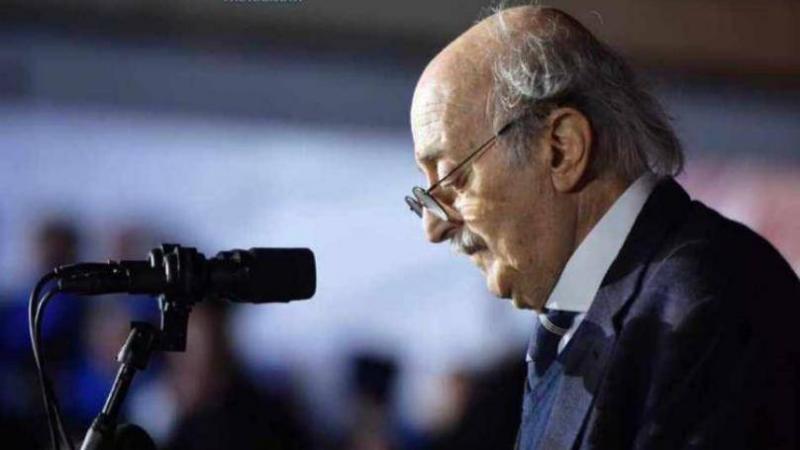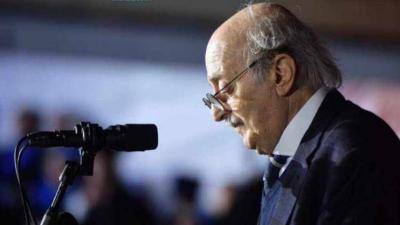It seems that the leader of the Progressive Socialist Party, Walid Jumblatt, has slowed down his turn towards Hezbollah or set limits for it. The statements he made in recent hours indicate this, according to political sources opposed to "Al-Markaziyah." He confirmed that the meeting with the party took place "because Hezbollah is a fundamental component of the country and cannot be excluded. This is illogical," adding, "I raised several questions to my interlocutors so they could convey them to Secretary-General Hassan Nasrallah. I have not received an answer yet. I also expressed my desire to hold elections at the appropriate time. However, since Nasrallah recently called for the formation of a government with the necessary powers, I conclude that the presidential elections are likely to take time."
He added, "All I am trying to do is to separate the main issues, such as the question of Hezbollah's arms or the issue of border demarcation and the Shebaa problem, from reform and economic recovery issues, which are more important at the moment." Regarding the consideration of Marada Movement leader Sleiman Franjieh as a unifying president, Jumblatt said, "Personally, I don't think so, but this decision will ultimately rest with the Democratic Gathering bloc, which will take the position it sees fit. I know Sleiman Franjieh the grandfather very well; he was our ally. I know the grandson well too. But I will say that his special relationship with Assad could be an obstacle."
As for his preference for the idea of a consensual president, Jumblatt said, "Not at all; what I told my interlocutors is that we do not want presidents with political attributes. Let us try to find a president capable of managing the crisis who also has an economic and financial background." Regarding a technocratic figure for the presidency, Jumblatt stated, "Yes, but with a political background without necessarily coming from any party."
For regional or international reasons related to the Vienna negotiations or other calculations, the head of Mukhtara has once again hesitated, decisively stating "no" to a president from the March 8 Alliance, meaning he would not give his votes or secure the majority to bring a Hezbollah candidate to Baabda Palace, whether they are Gebran Bassil (the head of the Free Patriotic Movement) or Sleiman Franjieh (the head of the Marada Movement). He is still in the middle looking for a figure capable of economic rescue and sovereignty, which he has asserted for years, through his commitment to maintaining the best relations between Lebanon and its Arab surroundings.
These specifications are agreed upon with the opposition parties to the "era - Hezbollah" duo, primarily the Lebanese Forces, although Jumblatt insists on highlighting a distinction that separates him from Maarab. The latter has proposed—something its leader Samir Geagea has reiterated several times in recent weeks—an agreement on a president capable of reform and rescue while facing Gebran Bassil's plans, which Jumblatt stated "has imposed a heavy tax on us," and that with his presence, reform is distant, and the presumed oil wealth is at risk. Thus, nothing has been settled concerning the presidency, and obstructing the party's candidate from reaching Baabda remains possible if the opposition groups in Parliament agree on a name among themselves, the sources conclude.




